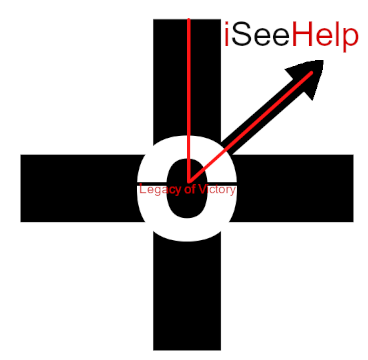How Did We Get Here?
Trajectory of Direction

IDENTITY CRISIS
How Did We Get Here?
The cycles of history indicate that we learn nothing from history. Bondage leads to courage then to complacency and back to bondage over and over and over again. When will we ever learn?
Cycles of history
To clarify the path that nations and cultures follow, the cycles of history seem to explain what happens over time. First, people oppose the bondage of their conditions. Then they have faith to search for unity based on deep moral gatherings. Next, courageous individuals fight for freedom that leads to liberty and abundance. However that focus turns to material things and selfishness (“It’s all about me and my stuff.”) From there, complacency sets in with entitlement and self-absorption. Personal responsibility is lost and apathy creates governments that cause independence to be controlled. Finally, people return to dependence where governments achieve complete control that leads back to bondage.

Tracing the trajectory of history, Carl Trueman explains what is “symptomatic of that underlying fundamental change” over the past 200 to 300 years, citing the influence of Rousseau and Freud. Rousseau saw the inner space as positive; Freud identified it as negative. Is your body just a piece of Play-Doh?
Technology has shaped the way we think about our bodies. Think about that statement, “I’m a woman trapped in a man’s body.” Why did the doctor a hundred years ago necessarily respond to that by saying, “It’s a problem with the mind. We need to bring the mind into line with the body.” Because it was thoroughly implausible to give any other answer. The body’s fixed. The body’s sex is fixed. Now, of course, technology has trained us to think, “Well, our bodies are actually just stuff. Our bodies are really like the rest of the universe, just pieces of Play-Doh, over which we can exert our power and our will.” Technology has made that plausible. -Carl Trueman
Crucial conversations
Professor Trueman sees dramatic changes that are taking place. In the current society in the United States and around the world, technology is also changing the way people express who they are. Have parents lost control?
YouTube and TikTok have far more authority than parents and teachers in young children’s lives today. The internet is subverting parental authority. So we have that aspect. Those are all things that would form our identity being shattered or weakened in dramatic ways that make the expressive individual even stronger. -Carl Trueman
If Christianity has been disemboweled to a significant extent to undermine the nation, what is the solution? Can values be handed off to the next generation?
I think Christianity has been so rapidly disemboweled and so rapidly shunted to the margins of Western society that the hope for a national transformation has to be very small at this point. -Carl Trueman
The response he suggests is related to our circle of influence. Don’t hope that there will be a return to “the way it was” or the national foundational principles. Instead, recognize where your own individual impact is: Christ in you, the hope of glory. You are the light of the world.
Revisionist history
Historical narratives, historical facts — signs and symbols — are subject to being undermined when there is an identity crisis within a culture.
If the individual is a matter of inner feelings and desires, then everything that imposes upon those things becomes oppressive. Historical narratives that don’t affirm me become narratives of oppression. History becomes a nightmare. History becomes something that presses down on me and prevents me from being myself. When that explodes in the public square in dramatic forms, it becomes a need for a dramatic forgetting, a removal of those signs and symbols of an allegedly oppressive past, whether it’s Abraham Lincoln or Christopher Columbus. It’s not enough to simply offer a critique of such symbols. They have to be removed because their very existence is a witness against my own self-identity. History pivots to the victim. When expressive individualism emerges as a force, when it emerges as a normative self, history pivots to the victim. History becomes not something that forms us but something that denies us, that oppresses us, that refuses to acknowledge us. -Carl Trueman
Implications for expressive individualism
Responsibility has its rewards. To first identify the destination of philosophical conclusions, examine how we got where we are today. Look at where we will end up — on the trash heap of history in a state of bondage — or rise above to survive and thrive. History tends to repeat itself.
Actions have consequences.
Read more from Bridge a Gap about faith, freedom, writing, and life lessons.


